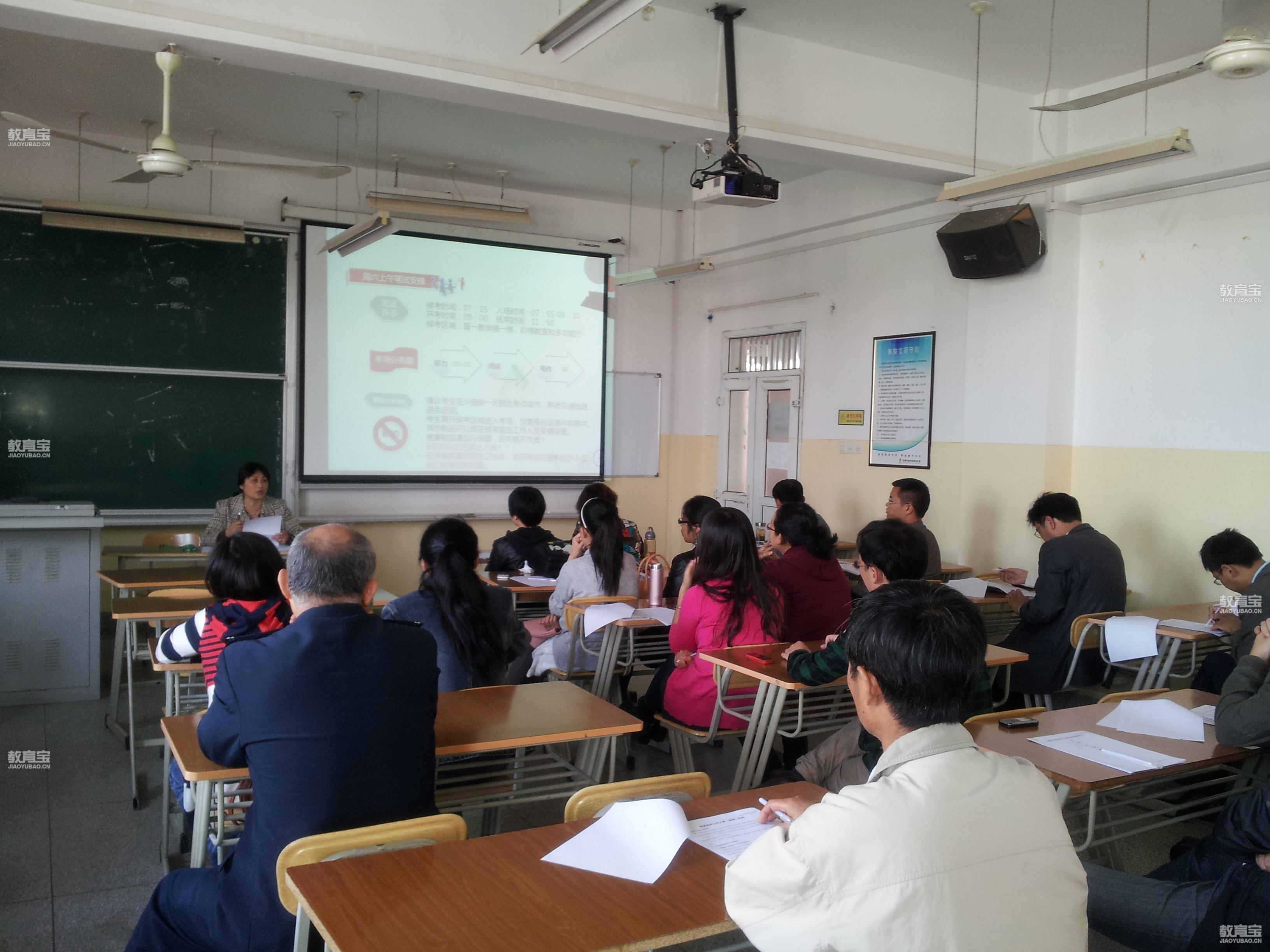 返回
教育头条
返回
教育头条

提高雅思听力的技巧分享 雅思阅读
下面小编跟大家一起了解提高雅思听力的技巧分享,希望对大家的学习有所帮助。
1. First and foremost, make sure you LISTEN to the recording, do not just HEAR it. A simple distinction between LISTENING and HEARING is that the element of ATTENTION is missing in hearing. When answering questions, learners must listen thoroughly to the recording instead of reading the questions. Simply put, do NOT READ and LISTEN at the same time. Before the recording is played out for you, focus ALL your attentionon your booklet. While listening to the recording, on the other hand, direct ALL you attention to the recording with a question in mind, in other words, LISTEN. I even sometimes ask my students NOT to look at the question, and instead to JUST LISTEN to avoid distraction.
这一点重要的是,确保你认真听整个录音,而不是随随便便听。认真听和随随便便听的区别是,你随随便便听的时候,其实并没有集中注意力。在回答问题的时候,答题者必须听到完整的录音,而不是读问题。简单来说,不要同时又听又读。在录音播放以前,把你所有的注意力放在你的试卷上。听录音的时候,集中所有注意力在一个具体的问题的解答上,也就是认认真真听。有的时候,我甚至要求我的学生不要去看问题,只是去认真听,来避免分心。
2. Another important point you need to keep in mind is that you don’t need to answer ALL the questions to get a good score. If you manage to answer even 30 out of 40 questions, you can still get a 7, which is a high score. Remember that the level of difficulty ofquestions vary in the IELTS Test (in both Listening and Reading sections). Asfar as Listening is concerned, for instance, FIVE questions are so difficult that only those candidates aiming for a band 8, 8.5 or 9 can answer them. The tricky part is that these challenging questions are RANDOMLY and of course CLEVERLY distributed in order to distract test takers. A smart and successful candidate is one who does not let a difficult question make him/her lose the track of the audio. My point – if you miss one question, even two, do not PANIC. They are most probably WAY above your level. IMMEDIATELY RECOVER so you don’t miss the questions you are capable of dealing with. Don’t let difficult questions have a DOMINO EFFECT on your general performance.
第二个重要的点是,你要记住,不需要正确回答所有的问题来取得一个好成绩。如果你能答对30道题,你还可以得7分,也是一个不错的成绩了。要记住雅思考试中的试题难度是不一样的(听力如此,阅读也是如此)。拿听力来说,有5道题非常难,只有那些想得8-9分的考生能做出来。比较有意思的是,这些难度较大的问题是随机分布的,而且也很巧妙地分布在各个部分中,目的就是干扰考生。聪明成功的考生不会因为一道难题卡住他,从而失去对这个录音节奏的把握。我的观点是如果你没听到一道题的答案,或者两道题的答案,不要慌张。可能这几道题是高于你的水平。要马上恢复你的镇定情绪,从而保证你可以回答出那些在你水平内的问题。不要让高难度的问题绊住你,成为拉低你总体成绩的多米诺骨牌。
3. In order to maximize your score and better your performance, you need to minimize your errors in Section 1. Many candidates, even with an acceptable level of listing ability, performpoorly in this section, simply because it is the VERY first section of the Listening test. To manage your anxiety, and in turn maximize your performance, do PLENTY of practice tests and mock tests. Practice NUMBERS and DICTATION. Develop a system. Find a list of words that are frequently used. I’ve come upwith a fantastic and sure-fire system: PDM (Pronunciation, Dictation, Meaning). If you find a word challenging in terms of PRONUNCIATION, mark it P. In thiscase, when you later on refer to it, the P reminds you that you had difficulty pronouncing that word right. The same thing can be applied to DICTATION (D) and MEANING (M).


为了很大程度提高你的分数和成绩,你需要减少你在一部分中的错误率。许多考生,即便他们有不错的列清单能力,在这一部分做得不好,而原因,仅仅是一部分是听力测试的初测试部分。要管理好你的焦虑,提高你的成绩,你必须做足够多的练习和模拟试卷。练习数字和听写。发展出一个系统。找出一摞经常使用的单词。我总结出一个有趣的非常实用的系统:PDM(发音,听写,词义)。如果你发现一个单词的发音比较有挑战,就把它归类到P。如此,当你日后复习到这个单词,你就可以知道你在这个单词的发音上遇到过困难。同理,你可以把单词归类到D和M。
4. An insurmountable problem for the vast majority of candidates, regardless of their listening ability, is indeed Multiple Choice Questions (MCQs), which frequently appear in Section 3 of the IELTS Test. This type of question appears to be challenging for a number of reasons.
First of all, candidates do not have time for reading all the questions and their options. This gets even more challenging with questions with long answer options. The solution? MAKE TIME. Instead of wasting your invaluable time REREADING questions in Section 1 and Section 2, budget your time so you have enough time to read and re-read questions in Sections 3 and 4. Be at least one or two steps AHEAD of the recording, if you will. Use the time you are given at the end of each section to prepare yourself for questions in the following section.
1. First and foremost, make sure you LISTEN to the recording, do not just HEAR it. A simple distinction between LISTENING and HEARING is that the element of ATTENTION is missing in hearing. When answering questions, learners must listen thoroughly to the recording instead of reading the questions. Simply put, do NOT READ and LISTEN at the same time. Before the recording is played out for you, focus ALL your attentionon your booklet. While listening to the recording, on the other hand, direct ALL you attention to the recording with a question in mind, in other words, LISTEN. I even sometimes ask my students NOT to look at the question, and instead to JUST LISTEN to avoid distraction.
这一点重要的是,确保你认真听整个录音,而不是随随便便听。认真听和随随便便听的区别是,你随随便便听的时候,其实并没有集中注意力。在回答问题的时候,答题者必须听到完整的录音,而不是读问题。简单来说,不要同时又听又读。在录音播放以前,把你所有的注意力放在你的试卷上。听录音的时候,集中所有注意力在一个具体的问题的解答上,也就是认认真真听。有的时候,我甚至要求我的学生不要去看问题,只是去认真听,来避免分心。
2. Another important point you need to keep in mind is that you don’t need to answer ALL the questions to get a good score. If you manage to answer even 30 out of 40 questions, you can still get a 7, which is a high score. Remember that the level of difficulty ofquestions vary in the IELTS Test (in both Listening and Reading sections). Asfar as Listening is concerned, for instance, FIVE questions are so difficult that only those candidates aiming for a band 8, 8.5 or 9 can answer them. The tricky part is that these challenging questions are RANDOMLY and of course CLEVERLY distributed in order to distract test takers. A smart and successful candidate is one who does not let a difficult question make him/her lose the track of the audio. My point – if you miss one question, even two, do not PANIC. They are most probably WAY above your level. IMMEDIATELY RECOVER so you don’t miss the questions you are capable of dealing with. Don’t let difficult questions have a DOMINO EFFECT on your general performance.
第二个重要的点是,你要记住,不需要正确回答所有的问题来取得一个好成绩。如果你能答对30道题,你还可以得7分,也是一个不错的成绩了。要记住雅思考试中的试题难度是不一样的(听力如此,阅读也是如此)。拿听力来说,有5道题非常难,只有那些想得8-9分的考生能做出来。比较有意思的是,这些难度较大的问题是随机分布的,而且也很巧妙地分布在各个部分中,目的就是干扰考生。聪明成功的考生不会因为一道难题卡住他,从而失去对这个录音节奏的把握。我的观点是如果你没听到一道题的答案,或者两道题的答案,不要慌张。可能这几道题是高于你的水平。要马上恢复你的镇定情绪,从而保证你可以回答出那些在你水平内的问题。不要让高难度的问题绊住你,成为拉低你总体成绩的多米诺骨牌。
3. In order to maximize your score and better your performance, you need to minimize your errors in Section 1. Many candidates, even with an acceptable level of listing ability, performpoorly in this section, simply because it is the VERY first section of the Listening test. To manage your anxiety, and in turn maximize your performance, do PLENTY of practice tests and mock tests. Practice NUMBERS and DICTATION. Develop a system. Find a list of words that are frequently used. I’ve come upwith a fantastic and sure-fire system: PDM (Pronunciation, Dictation, Meaning). If you find a word challenging in terms of PRONUNCIATION, mark it P. In thiscase, when you later on refer to it, the P reminds you that you had difficulty pronouncing that word right. The same thing can be applied to DICTATION (D) and MEANING (M).


为了很大程度提高你的分数和成绩,你需要减少你在一部分中的错误率。许多考生,即便他们有不错的列清单能力,在这一部分做得不好,而原因,仅仅是一部分是听力测试的初测试部分。要管理好你的焦虑,提高你的成绩,你必须做足够多的练习和模拟试卷。练习数字和听写。发展出一个系统。找出一摞经常使用的单词。我总结出一个有趣的非常实用的系统:PDM(发音,听写,词义)。如果你发现一个单词的发音比较有挑战,就把它归类到P。如此,当你日后复习到这个单词,你就可以知道你在这个单词的发音上遇到过困难。同理,你可以把单词归类到D和M。
4. An insurmountable problem for the vast majority of candidates, regardless of their listening ability, is indeed Multiple Choice Questions (MCQs), which frequently appear in Section 3 of the IELTS Test. This type of question appears to be challenging for a number of reasons.
First of all, candidates do not have time for reading all the questions and their options. This gets even more challenging with questions with long answer options. The solution? MAKE TIME. Instead of wasting your invaluable time REREADING questions in Section 1 and Section 2, budget your time so you have enough time to read and re-read questions in Sections 3 and 4. Be at least one or two steps AHEAD of the recording, if you will. Use the time you are given at the end of each section to prepare yourself for questions in the following section.
以上就是教育宝头条带来的详细介绍,想要查看更多雅思资讯,敬请关注教育宝头条,也可以加我微信18560125702,我会解答你的学习问题。返回教育宝头条
【免责声明】本文仅代表作者本人观点,与教育宝无关。教育宝对文中陈述、观点判断保持中立,不对所包含内容的准确性、可靠性或完整性提供任何保证。请读者仅作参考,特此声明!





